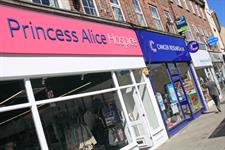The government has said it has no plans to scrap Empty Property Relief after experts expressed fears it could be lost to charities.
The Treasury and the Department for Levelling Up, Housing & Communities have launched a joint consultation aimed at reducing evasion and avoidance of business rates.
The consultation asks for views on measures including reforms to Empty Property Relief to address known avoidance schemes.
Empty Property Relief applies for a limited period after a property becomes unoccupied but the relief can be extended.
This includes when the ratepayer is a charity or a registered community amateur sport club and, when the property is next in use, it is likely to be wholly or mainly used for charitable or sports club purposes.
This has provided opportunities for abuse by non-charitable property owners, the Charity Tax Group said.
Richard Bray, chair of the CTG, said: “The consultation is aimed at limiting this form of business rates avoidance and evasion.
“The Charity Tax Group supports the intentions behind the consultation but at the same time considers that there is a risk of unintended consequences with the current proposals being put forward.
“This includes the potential loss of Empty Property Relief to charities altogether.
“CTG is responding to the consultation to encourage the government to stay true to its commitment to providing a generous and targeted system of reliefs and exemptions.
“We believe that there should be suitable amendments to eligibility rather than any abolition of this relief. We urge charities to make similar representations to the government.”
Clare Mills, director of policy and communications at the Charity Finance Group, said: “The consultation on business rates avoidance and evasion has raised some questions around charities and the ‘next in use’ exemption.
“At present, if a property is empty and when ‘next in use’ it is likely it will be used by a charity or community amateur sports club, the owner or tenant can apply to the local authority for Empty Property Relief.
“This is a helpful exemption for charities who may have been gifted a commercial property and need time to make plans, or who have had to pause developing their work after taking on additional premises. It’s also useful for charities with premises on hand for use in emergency response.
“We haven’t been able to establish how often this exemption is being exploited for business rates avoidance or evasion, but the government has shared concerns from some stakeholders that the exemption may be misused as a long-term method to avoid paying business rates on empty properties.
“This includes, in some cases, owners misleading legitimate charities into occupying an unsuitable property at a low cost.”
A Treasury spokesperson said: “There are no plans to abolish Empty Property Relief for anyone.
“While this relief provides important support to landlords with vacant properties, local authorities and previous respondents to consultations have identified it as a significant channel for avoidance activity.
“The government is therefore seeking views on proposals that aim to balance support for those who require it with the need to tackle abuse.”
Mills said the CFG would urge any charity or CASC to “approach offers of taking on empty commercial premises with a large degree of caution”.
She said: “To protect your organisation, think carefully about whether you want to be responsible for or associated with an empty commercial property.
“Do your due diligence thoroughly on the landlord. Insist that if you do take on an empty commercial property, you will be responsible for the business rates and agreeing the EPR with your local authority.
“If you are in any doubt about whether the arrangement you are being offered could be interpreted as business rates avoidance or evasion, step away.”
Charities are eligible for an 80 per cent reduction on their business rates, with many receiving discretionary relief on the remainder.
The total business rate relief received by UK charities is more than £2.4bn a year.
